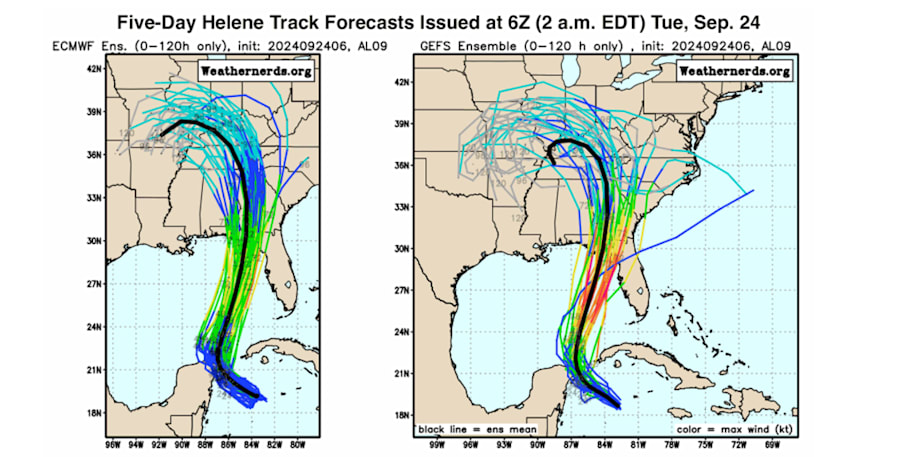JACKSONVILLE, Fla. – Meteorologists are occasionally criticized for inaccurate forecasts; however, recent hurricane track forecasts have been remarkably accurate, leading to a puzzling trend.
RELATED: Tracking the Tropics: Caribbean system near Florida has 40% chance of development in the next 7 days
Instead of being lauded for early, life-saving predictions, some are blaming the government for steering hurricanes toward certain areas of the country.
Hurricane Helene’s well-predicted landfall in Florida’s Big Bend, followed by a near-perfect advanced forecast of Milton hitting the Tampa Bay area, has bolstered the notion that these unwavering storm paths must be due to a clandestine government geoengineering program.

The Science Behind Hurricane Prediction
To understand the absurdity of such claims, one must appreciate the complex science behind hurricane prediction. Meteorologists and climate scientists employ sophisticated computer models that analyze vast amounts of data, including atmospheric pressure, wind speed, ocean temperature, and humidity. These models can accurately predict the path of a hurricane days or even weeks in advance.
The remarkable consistency of these predictions across different nations—despite potential geopolitical tensions—is a testament to the reliability of the underlying science.
It is highly improbable that multiple countries could coordinate such a massive operation to manipulate a hurricane’s path without detection.
Why is NOAA Firing Back?
This shift from acknowledging the advances in life-saving, accurate forecasts to baseless claims that people can control the weather is rooted in various conspiracy theories spread by social media influencers and given weight by politicians.
The attention these claims have garnered recently reached a tipping point and compelled the NOAA to issue a statement assuring the public that it is impossible to control the weather.
“NOAA does not modify the weather, nor does it fund, participate in, or oversee cloud seeding or any other weather modification activities,” the agency said. “NOAA’s objective is to better understand and predict Earth’s systems, from the bottom of the seafloor to the surface of the sun. We are deepening our understanding and deploying new resources to improve forecasting and give communities earlier and more accurate warnings ahead of extreme weather events. NOAA is required by law to track weather modification activities by others, including cloud seeding, but has no authority to regulate those activities.”
The Physical Impossibility of Hurricane Manipulation
Beyond the logistical challenges, the sheer physical scale of hurricanes renders the idea of human manipulation implausible. These storms are colossal systems of energy, drawing power from warm ocean waters. To alter their course or intensity would require a level of technological prowess far beyond our current capabilities.
Even intervening on the smallest scale, by altering cloud dust particles to absorb more water in hopes of making rain, has never been proven to work since experiments began in the 1960s.
The science behind cloud seeding isn’t inherently flawed; however, real-world conditions are far more complex. Crucial factors like cloud type, air temperature, and moisture content all play a role in precipitation formation. Seeding clouds that lack the necessary ingredients might not produce any additional rainfall, and the impact on existing weather patterns can be unpredictable.
The Real Threat: Climate Change
Instead of indulging in conspiracy theories, we should focus on the real and pressing threat of climate change.
Rising global temperatures are fueling more intense hurricanes, posing significant risks to coastal communities.



